 Many people have asked me to review the Quality Payment Program final rule, released on October 14, 2016. Several summaries have already been written but your best bet is to rely on the CMS Quality Payment Program website at https://qpp.cms.gov. Yes, the rule is still complex - over 2400 pages, of which more than 50% is the mandated response to comments made on the proposed rule. The good news is that CMS has been very responsive to feedback, creating a transition plan for adoption, reducing the number of criteria and extending the timeline which enables iterative learning before large scale implementation. Under the Quality Payment Program, clinicians have two approaches to choose from for reimbursement: the Merit-based Incentive program (MIPS) and Advanced Alternative Payment Models (APMs)...
Many people have asked me to review the Quality Payment Program final rule, released on October 14, 2016. Several summaries have already been written but your best bet is to rely on the CMS Quality Payment Program website at https://qpp.cms.gov. Yes, the rule is still complex - over 2400 pages, of which more than 50% is the mandated response to comments made on the proposed rule. The good news is that CMS has been very responsive to feedback, creating a transition plan for adoption, reducing the number of criteria and extending the timeline which enables iterative learning before large scale implementation. Under the Quality Payment Program, clinicians have two approaches to choose from for reimbursement: the Merit-based Incentive program (MIPS) and Advanced Alternative Payment Models (APMs)...
News
The Quality Payment Program Final Rule
- Login to post comments
- News
A Doctor Leverages Open Source to Learn How to Code And Improve Medical Care in Africa
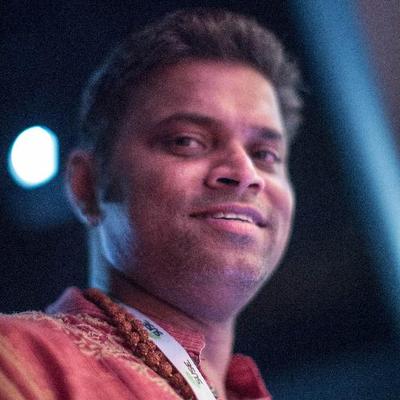 Judy Gichoya is a medical doctor from Kenya who became a software developer after joining the open source medical records project, OpenMRS. The open source project creates medical informatics software that helps health professionals collect and present data to improve patient care in developing countries. After seeing how effective the open medical records system was at increasing efficiency and lowering costs for clinics in impoverished areas of Africa, she began hacking on the software herself to help improve it. Then she set up her own implementation in the slums outside Nairobi, and has done the same for dozens of clinics since. This is a classic story of open source contributors, who join in order to scratch an itch. But Gichoya was a doctor, not a programmer. How did she make the leap?
Judy Gichoya is a medical doctor from Kenya who became a software developer after joining the open source medical records project, OpenMRS. The open source project creates medical informatics software that helps health professionals collect and present data to improve patient care in developing countries. After seeing how effective the open medical records system was at increasing efficiency and lowering costs for clinics in impoverished areas of Africa, she began hacking on the software herself to help improve it. Then she set up her own implementation in the slums outside Nairobi, and has done the same for dozens of clinics since. This is a classic story of open source contributors, who join in order to scratch an itch. But Gichoya was a doctor, not a programmer. How did she make the leap?
- Login to post comments
- News
Got the Writing Bug? An Introduction to Bibisco
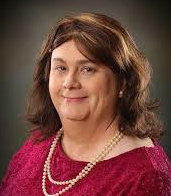 A couple of years ago, when I started tinkering with long-form fiction writing, I attended some events for National Novel Writing Month, or NaNoWriMo. Among the attendees there was a lot of talk of using Scrivener as a tool for organizing your writing, and as a place to keep your details. I looked into it, but it was kind of pricey—and the license was such that to use it on my Windows PC and my MacBook, I'd need to buy it twice, which did not appeal to me at all. So I muddled along for a year or so, starting my novel with a pair of LibreOffice Writer documents: one for the novel, and one for my notes on people, places and things, along with some ASCII sketches and a folder full of pictures and scans of drawings I'd made...
A couple of years ago, when I started tinkering with long-form fiction writing, I attended some events for National Novel Writing Month, or NaNoWriMo. Among the attendees there was a lot of talk of using Scrivener as a tool for organizing your writing, and as a place to keep your details. I looked into it, but it was kind of pricey—and the license was such that to use it on my Windows PC and my MacBook, I'd need to buy it twice, which did not appeal to me at all. So I muddled along for a year or so, starting my novel with a pair of LibreOffice Writer documents: one for the novel, and one for my notes on people, places and things, along with some ASCII sketches and a folder full of pictures and scans of drawings I'd made...
- Login to post comments
- News
How to Organize Your Scholarly Research with Docear
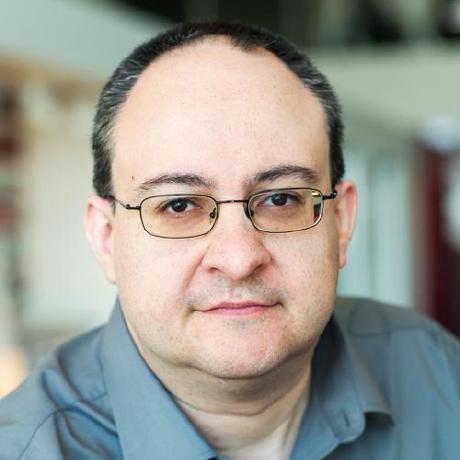 The Docear academic literature suite blends Freeplane and JabRef to make a comprehensive academic paper-writing application, with support for mind-mapping, citations, notes, and many other features. Writing a major scholarly paper can be a daunting undertaking. Turning a collection of scholarly research into a coherent paper requires a great deal of organizing and planning. To simplify that task, there are many tools available to assist a researcher with keeping track of their bibliographic citations, and there are also plenty of tools to help a user organize their thoughts...
The Docear academic literature suite blends Freeplane and JabRef to make a comprehensive academic paper-writing application, with support for mind-mapping, citations, notes, and many other features. Writing a major scholarly paper can be a daunting undertaking. Turning a collection of scholarly research into a coherent paper requires a great deal of organizing and planning. To simplify that task, there are many tools available to assist a researcher with keeping track of their bibliographic citations, and there are also plenty of tools to help a user organize their thoughts...
- Login to post comments
- News
Five Open Source Tools Libraries Need to Know About
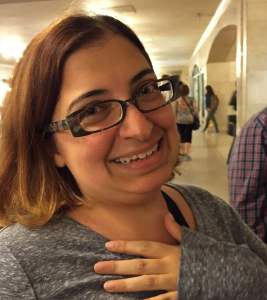 There was a time when working in the library I found it very frustrating (as many librarians do) that there were so few options for software that actually did what I needed. In libraries we're so used to there being this vendor=software model. Where one vendor controls a product and while there might be other similar products, they too are controlled by a vendor. This is why libraries need to take a closer look at open source software. By removing the "owner" (aka the vendor) from the equation we get a lot more freedom to make software that does what we want, how we want, when we want. One of the hardest thing to teach libraries who are switching to an open source solution is that the power is now in their hands to direct the software...
There was a time when working in the library I found it very frustrating (as many librarians do) that there were so few options for software that actually did what I needed. In libraries we're so used to there being this vendor=software model. Where one vendor controls a product and while there might be other similar products, they too are controlled by a vendor. This is why libraries need to take a closer look at open source software. By removing the "owner" (aka the vendor) from the equation we get a lot more freedom to make software that does what we want, how we want, when we want. One of the hardest thing to teach libraries who are switching to an open source solution is that the power is now in their hands to direct the software...
- Login to post comments
- News
Global Group Communication and Culture Tips
If open source needed a new slogan it whould be: Think Globally, Act Globally. Probably with a semicolon instead of a comma, but what slogan uses a semicolon? A semicolon is slogan poison. Just like thinking locally is open source poison. The thing is, when you create a tool you need and decide to throw a Creative Commons license on it to allow others to add to it or make fun of your lousy source code, you can't be thinking locally. You know that it will now reach anywhere and everywhere. And, if you didn't realize that, then you're probably on a different Internet than me...
- Login to post comments
- News
OSEHRA Proposes Visionary Open Digital Health Platform for the VA
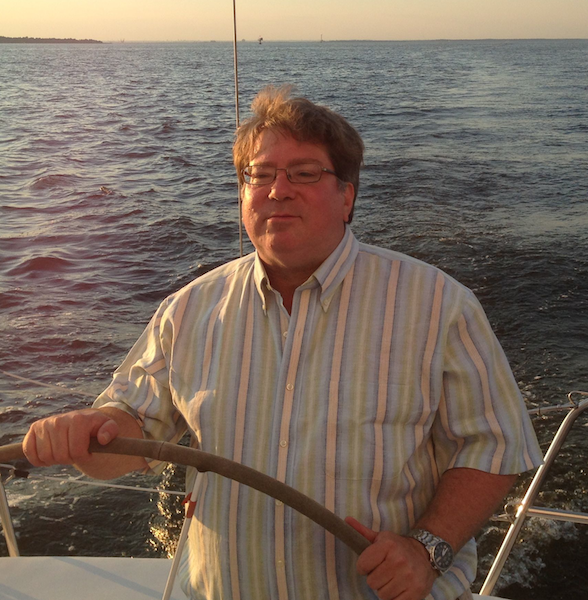 The Veterans Health Administration (VHA) recently released a Request for Information (RFI) calling for advice on how to build an open, "interoperable digital health platform." The RFI received 40 responses. Only one of those was publicly released, the one from OSEHRA. That the open source EHR organization was the only one that has been open in their submissions, by itself, tells a story. There are some in the VA proposing replacing the open source VistA EHR with a "Commercial" lock-in product. Proprietary EHR vendors are circling the VA like sharks smelling blood in the water, and they don't want the public to know what they are up to...The OSEHRA response below. Note that several dozen OSEHRA member companies and associates participated in drafting this response.
The Veterans Health Administration (VHA) recently released a Request for Information (RFI) calling for advice on how to build an open, "interoperable digital health platform." The RFI received 40 responses. Only one of those was publicly released, the one from OSEHRA. That the open source EHR organization was the only one that has been open in their submissions, by itself, tells a story. There are some in the VA proposing replacing the open source VistA EHR with a "Commercial" lock-in product. Proprietary EHR vendors are circling the VA like sharks smelling blood in the water, and they don't want the public to know what they are up to...The OSEHRA response below. Note that several dozen OSEHRA member companies and associates participated in drafting this response.
- Login to post comments
- News
Dutch Parliament to Make Open Standards Mandatory
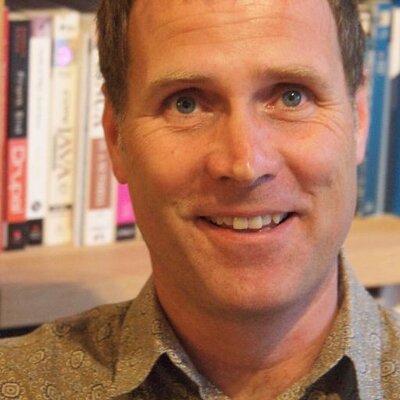 A law proposal by MP Astrid Oosenbrug was adopted by the Dutch Parliament’s lower house yesterday. According to the MP, the open standards requirement will be one of several changes to the country’s administrative law, introduced next year. “The minister has earlier agreed to make open standards mandatory”, she said. “The parliament is making sure this actually happens.” The use of open standards will be made mandatory for public administrations.
A law proposal by MP Astrid Oosenbrug was adopted by the Dutch Parliament’s lower house yesterday. According to the MP, the open standards requirement will be one of several changes to the country’s administrative law, introduced next year. “The minister has earlier agreed to make open standards mandatory”, she said. “The parliament is making sure this actually happens.” The use of open standards will be made mandatory for public administrations.
- Login to post comments
- News
Dispatch from Denmark
 Denmark is a remarkable country of 5 million people with a robust social support system. Healthcare is provided for life as part of being Danish. If you lose your job, generous unemployment benefits provide for the ongoing well being of you and your family. Income inequality is among the lowest in the world (see the world mapped by income inequality below). When people gather together in Denmark, there is a sense of common purpose and shared experiences. The Danish call this “hygge” or coziness. I spoke about the experiences of the Meaningful Use program, the evolving US reimbursement system, and the quest for innovation - especially in the areas of social networking for healthcare, mobile, analytics, and cloud hosting...
Denmark is a remarkable country of 5 million people with a robust social support system. Healthcare is provided for life as part of being Danish. If you lose your job, generous unemployment benefits provide for the ongoing well being of you and your family. Income inequality is among the lowest in the world (see the world mapped by income inequality below). When people gather together in Denmark, there is a sense of common purpose and shared experiences. The Danish call this “hygge” or coziness. I spoke about the experiences of the Meaningful Use program, the evolving US reimbursement system, and the quest for innovation - especially in the areas of social networking for healthcare, mobile, analytics, and cloud hosting...
- Login to post comments
- News
When Artificial Intelligence Robots Start Replacing Physicians, Will We Notice -- Or Care?
 There's an interesting verbal battle going on between two prominent tech venture capitalists over the future of AI in health care. In an interview in Vox, Marc Andreessen asserted that Vinod Khosla "has written all these stories about how doctors are going to go away...And I think he is completely wrong." Mr. Khosla was quick to respond via Twitter: "Maybe @pmarca [Mr. Andreessen] should read what I think before assuming what I said about doctors going away." He included a link to his detailed "speculations and musings" on the topic. It turns out that Mr. Khosla believes that AI will take away 80% of physicians' work, but not necessarily 80% of their jobs, leaving them more time to focus on the "human aspects of medical practice such as empathy and ethical choices"...
There's an interesting verbal battle going on between two prominent tech venture capitalists over the future of AI in health care. In an interview in Vox, Marc Andreessen asserted that Vinod Khosla "has written all these stories about how doctors are going to go away...And I think he is completely wrong." Mr. Khosla was quick to respond via Twitter: "Maybe @pmarca [Mr. Andreessen] should read what I think before assuming what I said about doctors going away." He included a link to his detailed "speculations and musings" on the topic. It turns out that Mr. Khosla believes that AI will take away 80% of physicians' work, but not necessarily 80% of their jobs, leaving them more time to focus on the "human aspects of medical practice such as empathy and ethical choices"...
- 1 comment
- News